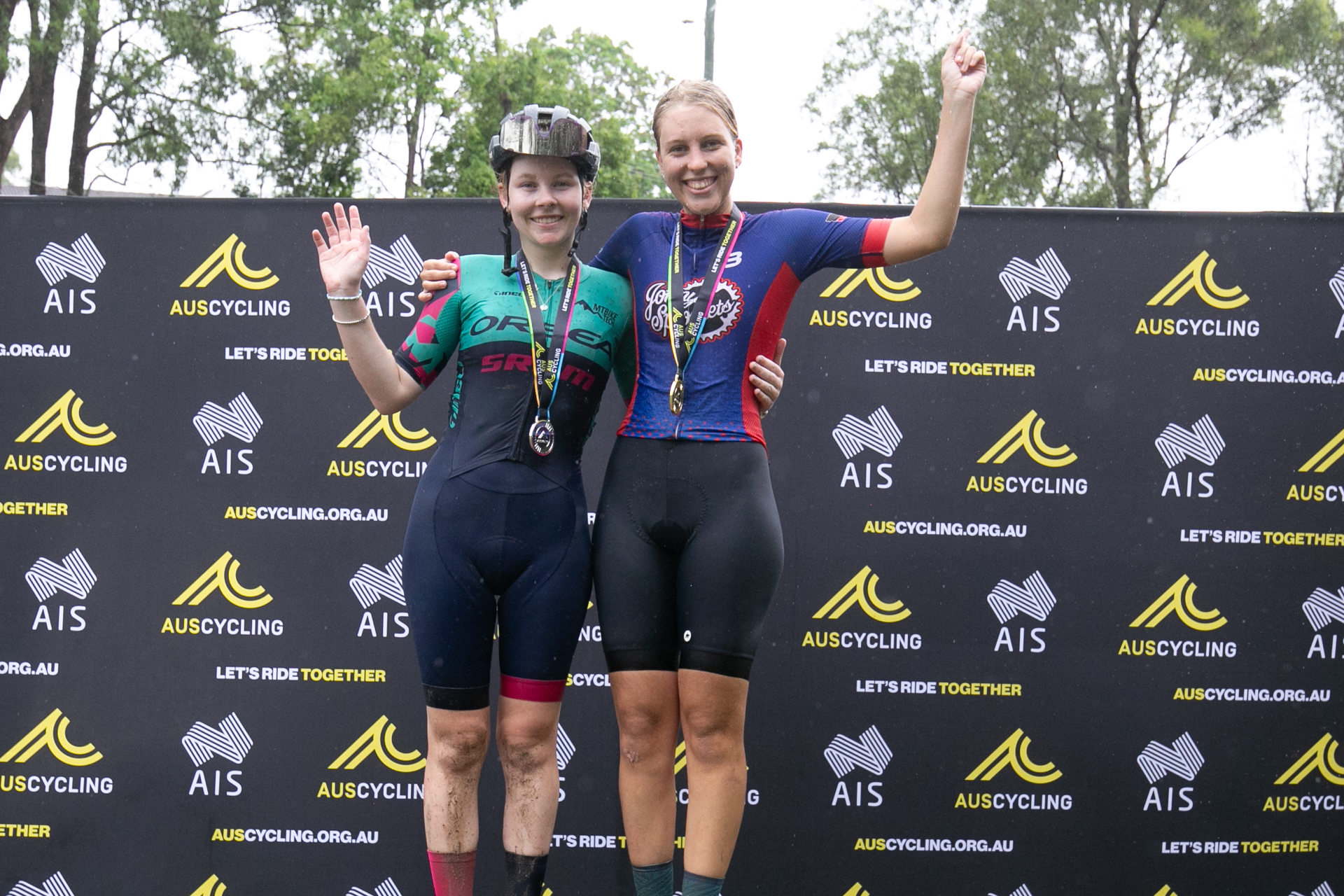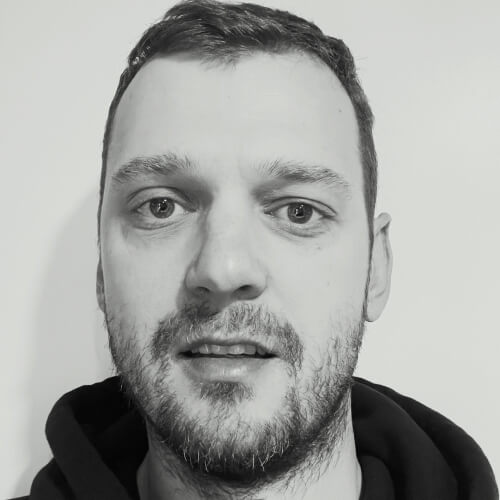Take a look at the results sheets from rounds 1 and 2 of Australia’s 2024 Cross-Country MTB National Series and you’ll notice some rather striking field sizes. As reported in Escape’s Down Under Digest in early February, just nine elite men and two elite women competed across the weekend’s racing on the Gold Coast.
At a quick glance, these numbers don’t paint a particularly encouraging picture of the health of the National Series and of Aussie MTB more broadly. But is it as simple as that? Or is there more to the story?
According to AusCycling’s executive general manager of sport, Kipp Kaufmann, it’s important to understand the young history of the MTB National Series and the way it was formed from the ashes of previous competitions, run by Mountain Bike Australia – MTB’s governing body before the creation of AusCycling in November 2020.
“Mountain Bike Australia had killed off the national series prior to AusCycling, and then came in and I guess pushed it a little bit further and developed a thing called the National Cup,” Kaufmann told Escape. “Nice in theory. Any event could be part of a [National Cup]. So you put yourself in as a gold, silver, bronze event, and then [riders] would get a certain amount of points for going to those events.
“COVID hit and it just didn’t take – it took poorly. I do think there were some good ideas to [the National Cup]. But there was no real elite racing happening at all. So no real national series, if you will – it was almost a participation series.”
After a few years, AusCycling scrapped the National Cup and reintroduced a MTB National Series for the 2023 season.
“[AusCycling had] some wins and losses last year,” Kaufmann continued. “Numbers were good for downhill. I wouldn’t call them great, but quite good. The excitement’s still happening in the gravity disciplines, but still relatively small for cross-country.”
Modest fields took part in the six rounds of the 2023 XCO National Series. The opening round at Stromlo in Canberra attracted the biggest crowds of the season – 23 elite men and 10 elite women. So why were numbers so small on the Gold Coast earlier this month?
Sam Fox, winner of the two elite men’s rounds on the Gold Coast and the reigning national champion, told Escape there are probably a few reasons for the poor turn-out earlier this month.
“There’s a lot of cool races around Australia at the moment, and so people have to pick their calendars carefully,” he said. “If no-one expects good competition at a National Series event, there’s no incentive to go yourself.”
Fox points to this coming weekend’s Otway Odyssey in Victoria as an example. “[It’s] going to be huge this year, as all the ‘top dogs’ of Australian MTB will be there. That in itself drives other elite riders to enter and see how they compare.”
Then, Fox says, there’s the issue of UCI points. In 2023, the two Gold Coast cross-country rounds were UCI C2-level events, offering UCI points for the top riders across the weekend. That wasn’t the case when the National Series returned to the Gold Coast a few weeks ago.
“A lot of the elite guys are chasing world rankings,” Fox said. “For me this helps me keep my contract [with French pro team Lapierre Mavic Unity – ed.] but also gives me a foot up when I race overseas.
“If there’s no UCI points in Australia, we know we have to spend money overseas to chase them. So we need to save our money, and race days for that.”
Fox himself feels that pressure.
“I really want to support the return of the National Series, and so while there wasn’t points or prize money on offer at the Nerang [Gold Coast] national round I went anyway,” he said. “But I won’t attend the Canberra rounds [March 1-3] as I can’t justify the expense for minimal return. I’m heading to Otway [Odyssey] instead before a final training camp at home.
“This shouldn’t reflect poorly on the amazing clubs running these National Series races – they put huge time, effort, and funds into these events, but to host a UCI race is expensive. You need to pay commissaires, anti-doping checks, minimum prize money, etc. so without assistance from governing bodies it’s hard to manage.”
Kaufmann agrees that a lack of UCI points could have contributed to the low numbers on the Gold Coast, but he also believes a calendar clash could have played a part.
“I would say, with Gold Coast, on my own reflection, we probably made a strategic error … which is on that same weekend, there was a Track World Cup, the Melbourne to Warrnambool, and [the MTB National Series round on the Gold Coast],” he said. “And we have to do a bit of that in the summer now, right? That’s just what it is. But that probably isn’t the best decision.”
Kaufmann thinks there might have been a few riders that didn’t race on the Gold Coast because they were racing in those other events, but doesn’t want to use that as an excuse.
“Mountain bike should be able to sit on its own,” he said. “So I think there’s possibly a couple of things there [that are responsible for the low numbers] – by not running the UCI round, by having the conflict, by still us needing to drive up a proper national series to the scale that it probably needs to be. I think all of those sit together.
“And I do think cross-country is probably not having the upswing, like road, where people are doing different things right now.”
So what can be done to help grow the XCO National Series, and to grow elite cross-country in Australia? Because as Kaufmann admits, “cross-country is an important Olympic discipline so we have to develop it into a better national series.”
Kaufmann admits that he doesn’t have all the answers right now. “But initially, I think we have to think about how can we make these less about just the UCI elite element of it?” he said. “Mountain bike’s awesome for festivals and excitement and fun and all of those things. It just has a great vibe. How do we bring that back to cross-country mountain biking, and make that elite element still really important, but not kind of the forerunner of the whole thing?”
Independently of Kaufmann, Fox also noted the need for more excitement in the MTB National Series, if participation is going to increase.
“They’re not that fun!”, Fox said of the National Series rounds. “I think something European races do well is run UCI races in conjunction with other events. So you have a festival-like weekend where hobby riders can compete themselves in an event (like Otway, or stages of Quad Crown etc.) and then spectate the dense elite fields. This gives a great spectator vibe to the races, and it generally makes the races quite accessible (e.g. in or near a town).”
Fox knows that it’s not as simple as just ‘putting on a festival’, though.
“Of course changing any of these aspects is a huge challenge, with most of these events run by volunteers there just isn’t the time or energy available,” he said. “I was part of organising the local Launceston MTB Club Ben Lomond KOM/QOM and even that was a logistical nightmare with only two start waves on one road. So I can’t even begin to imagine organising a cycling ‘festival’.”
One Australian MTB event that seems to be excelling in creating a fun, appealing atmosphere is the Cannonbal MTB Festival. The 10th edition was held in Thredbo, New South Wales this past weekend, attracting large crowds to a bunch of downhill events (including round 2 of the Downhill National Series). Some 74 riders took part in the pro men’s category, 13 raced in the pro women’s field, and nearly 500 riders total competed across the weekend in total.
While the elite fields were very small for the two recent Gold Coast rounds of the Cross-Country National Series, it’s worth noting that other fields were stronger. The U19 men’s field included 17 riders, for example, and more than 100 riders took part across all grades. While women’s participation was still small, it’s encouraging that not all grades were as small as in the elite ranks (there were six riders in the U19 women’s field and five in the Masters 3/4 contingent).
The MTB National Series continues in Canberra on March 1-3 with rounds 3 and 4 of the five-round series. As noted, last year’s two-race visit to Canberra was easily the most-attended stop on the cross-country calendar. Hopefully the fact it’s not a UCI event this year (for elite riders) won’t keep people away. Hopefully we see an uptick in entries compared to the low turn-out in the elite ranks on the Gold Coast a few weeks back and the MTB National Series continues growing in the way many hope it will.
Escape contacted the two elite female riders present at the Gold Coast rounds – Alanna Van de Hoef and Luca Turton – asking for their thoughts on the attendance issue. At the time of publishing, neither had responded.
Did we do a good job with this story?

